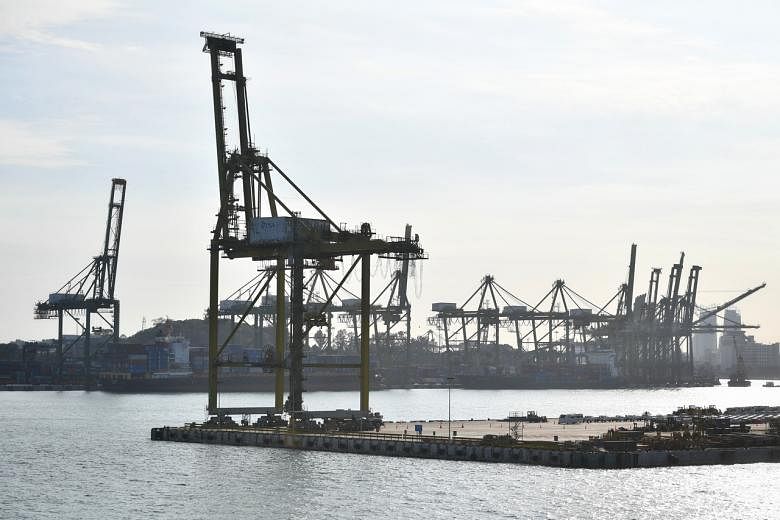At a time when protectionist sentiment is on the rise globally, Singapore must remain open to the world in order to attract investments and create good jobs for Singaporeans, Trade and Industry Minister Chan Chun Sing said.
One factor that has played a part in the expansion of multinational companies here is the network of free trade agreements (FTAs) Singapore has with major trading partners.
These FTAs help create good jobs for Singaporeans, Mr Chan said, citing how resident workers employed as professionals, managers, executives and technicians (PMETs) rose from 1.12 million in 2014 to 1.3 million last year. Over this period, the share of PMETs among employed residents rose from 53 per cent to 58 per cent.
His comments, in an interview with The Sunday Times and Lianhe Zaobao on Friday, come as sentiments against foreigners and FTAs are souring as the recession deepens. Some critics of FTAs have said that the pacts favour foreigners.
He said the anxiety Singaporeans have about jobs is understandable.
Citizens continue to get top priority for jobs, Mr Chan stressed, adding that the real issue is not the number of foreigners, but a weak economy that is making everyone worried.
The Government will help by "going all out" to attract investments and create good jobs, he said.
He added that while short-term measures include financial support for companies, jobs matching and training programmes, there is a longer-term challenge - helping Singaporeans succeed in a hyper-competitive world post-Covid-19.
"The foreigners issue must be seen in this context," he said.

In the interview, Mr Chan spelt out three aspects of Singapore's position on having foreign manpower complement a core of citizens.
One, there must be fairness and zero tolerance for discrimination of any kind, and tough action has been taken on firms with hiring bias.
Two, diversity matters and firms should avoid hiring from only a single source country.
Three, localisation - the transfer of skills to develop a pipeline of local talent - is key, and many Singaporeans have benefited and taken leadership roles in multinationals.
At a time when some countries are reassessing the benefits of FTAs, this is not the time to take a wrecking ball to the pacts Singapore has signed, said Mr Chan.
The network of FTAs is greater than the sum of its parts, because no investor in Singapore plans to serve only one external market, he said. Therefore, the more FTAs Singapore has, the more competitive it is in attracting investments and creating jobs.
This is especially critical as Singapore is a city-state without a natural hinterland, he added. "We have to create what we call a man-made competitive advantage... this applies to all our FTAs."
He acknowledged that it is difficult for many Singaporeans to understand that their companies are directly or indirectly serving these markets. But, he said, "individually, bilaterally, each and every FTA adds to the network effect".
Of Singapore's 25 FTAs, the Comprehensive Economic Cooperation Agreement (Ceca) has often been a target for critics who say it opened the floodgates for Indian nationals to enter Singapore.
Mr Chan pointed out that Ceca does not grant Indian nationals unconditional access to Singapore and immigration privileges. Like all other foreigners, they must meet Singapore's prevailing employment pass criteria, among others.
"We must never give up our rights to enforce our own rules, especially when it comes to immigration and citizenship," he said.
And while the concentration of certain nationalities in high-growth sectors - such as information and communications technology and professional and financial services - is shaped by the choice of sectors Singapore wants to grow, Mr Chan said, they require a critical mass of skilled people and hence a certain number of foreigners.
But Singaporeans are being trained and given a fair playing field to compete for them, he added.
He pointed out that as global supply chains reshuffle and companies rethink their global footprint, Singapore must aim to win not only high value-added activities, but also critical parts in the entire value chain.
"It is not enough to just make money and create good jobs - all those are still necessary but not sufficient. We need to have critical parts which cannot be easily bypassed by others."
Reassuring Singapore citizens of their place in the sun, Mr Chan said: "I don't believe Singaporeans are afraid to compete. I've every confidence in their ability to compete.
"All they are asking for is a fair playing field, and to strengthen local development efforts. We will make sure that we do this, and this is what we are going to do for the next generation."


